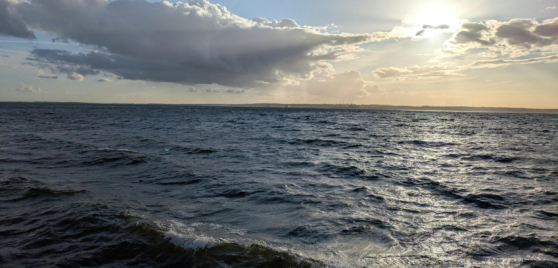By Lucas Goode
READ
“During the gold rush it’s a good time to be in the pick and shovel business.”
— Mark Twain
The growing demand for commodities, such as copper and nickel, required to enable the energy transition and the global drive to decarbonise is well documented. With this demand outlook investors have naturally sought out mining companies presuming that higher commodity prices will lead to improved earnings for the sector. However, as witnessed in the lithium space over the last 18 months, picking winners is not easy, especially in the small cap market.
At IML we have generally been cautious of investing in individual mining companies, given they tend to be one mine and one commodity businesses, or explorers / developers. Commodity prices are highly volatile and operating a mine is a complex operation, making the share prices of these companies potentially very volatile.
Service providers with a sustainable competitive advantage are a safer way to play the energy transition in Australia
However, there is an alternate way to play this theme which we believe has a better risk/reward profile: investing in the leading service providers. Given Australia’s preeminent role in the global mining industry there are three Australian listed companies which are global leaders in their respective industry sectors. While mining companies historically have been slow to adopt new technologies, we are now witnessing a growing awareness and uptake of new technology by the industry. These companies are at the forefront of bringing this new technology to the mining industry and, critically, they are all currently trading at reasonable valuations.
Our three favourite ‘pick and shovel’ stocks in the Australian small and mid-cap sector
Imdex (ASX:IMD) is a leading global mining technology company and the largest global supplier of core orientation tools and sensors, specialty drilling fluids and orebody knowledge software to the mining industry. Its products enable miners and drillers to find, define and mine orebodies with greater precision. Imdex’s solutions are particularly relevant as orebodies become progressively deeper and lower grade, meaning that minerals exploration is becoming more services intensive over time (following the trend that occurred in the oil and gas industry in recent decades).
While the company is primarily dependent on exploration spend (particularly copper and gold), the majority of this is for existing operations, being “brownfield” (near mine) drilling. The remainder of Imdex’s work comes from greenfield exploration, which by its nature is more cyclical. Despite the cyclical nature of this work the company has demonstrated its ability to innovate and grow its “take-rate” (share of each dollar spent on exploration) over recent years, a trend we expect to continue.
Imdex has also been successful at growing its market share and expanding the geographies in which it operates, which has been enhanced by the recent acquisition of a European-based competitor, Devico. These factors have helped offset the cyclicality that occurs in exploration spend.
Imdex is currently trading at 16.5 times FY25 forecast earnings, has minimal debt, and is well placed to continue growing as the mining industry adopts more of its range of tools and services.
ALS Limited (ASX: ALQ) is also a global leader which will benefit from higher global development and exploration spend. It has a very dominant market position, with greater than 50% of the global geochemistry testing market. The company has continued to increase this share over the past decade as its scale benefits have enabled faster turnaround times, a successful push into value-added services (including data and analytics) and on-site testing.
As with Imdex, revenue in its Minerals division is exposed to the mining exploration cycle as each drilling sample must be independently tested to determine its composition. In addition, ALS also performs mineral assays for ongoing mining operations, with regular testing of production ore and definition drilling required for mine production to continue. This diversity of earnings combined with market share gains has allowed ALS to remain highly profitable, even during mining downturns, and grow through the cycle with revenue increasing 10% compound from FY2008 to 2023.
ALS trades on 20 times FY25 earnings, in line with global peers, with recent acquisitions adding to earnings growth in FY25.
Orica (ASX:ORI) is a beneficiary from increased mining production. It is the world’s largest provider of explosives, blasting systems and cyanide. Explosives are a major consumable for the mining industry. Not only does the demand for more resources lead to more mining, but lower grades require more rock to be blasted and fed into mills for each tonne of metal. This is a clear positive for long term demand for explosives. Additionally, production is significantly less cyclical than exploration given incentive pricing is much lower for existing mines than for new projects.
Orica’s scale drives outsized returns relative to industry peers and new product innovation such as wireless blasting and software products are driving market share gains and closer relationships with major miners. Similar to Imdex, Orica has had particular success driving uptake of technology products and value-added services.
Orica is attractively priced on 16 times FY25 earnings, with synergies from the recent complementary acquisition of Cyanco, a leading mining chemical peer, underpinning part of this growth.
Dial down the risk for greater certainty in returns
While there is an incredible amount of money pouring into the energy transition, that doesn’t mean that every company and every investor exposed to this thematic will succeed. The resources sector is a highly competitive, cut-throat global market and many companies will not keep pace. Rather than trying to pick winners in some of the earlier-stage, more speculative parts of the energy transition we prefer to take considered stakes in well-managed companies with market-leading positions in industries that will benefit from this increase in spend.
Article by Lucas Goode. Lucas is a Portfolio Manager for IML’s Smaller Companies Fund. As of 25 June IMD, ALQ and ORI are all held in multiple IML funds.
This publication (the material) has been prepared and distributed by Natixis Investment Managers Australia Pty Limited ABN 60 088 786 289 AFSL 246830 and includes information provided by third parties, including Investors Mutual Limited (“IML”) AFSL 229988. Although Natixis Investment Managers Australia Pty Limited believe that the material is correct, no warranty of accuracy, reliability or completeness is given, including for information provided by third party, except for liability under statute which cannot be excluded. The material is for general information only and does not take into account your personal objectives, financial situation or needs. You should consider, and consult with your professional adviser, whether the information is suitable for your circumstances. Past investment performance is not a reliable indicator of future investment performance and that no guarantee of performance, the return of capital or a particular rate of return is provided. You should consider the information contained in the Product Disclosure Statement in conjunction with the Target Market Determination, available at www.stg-imlimited-staging.kinsta.cloud. It may not be reproduced, distributed or published, in whole or in part, without the prior written consent of Natixis Investment Managers Australia Pty Limited and IML. Statements of opinion are those of IML unless otherwise attributed. Except where specifically attributed to another source, all figures are based on IML research and analysis. Any investment metrics such as prospective P/E ratios and earnings forecasts referred to in this presentation constitute estimates which have been calculated by IML’s investment team based on IML’s investment processes and research. The fact that shares in a particular company may have been mentioned should not be interpreted as a recommendation to either buy, sell or hold that stock. Any commentary about specific securities is within the context of the investment strategy for the given portfolio.
INVESTMENT INSIGHTS & PERFORMANCE UPDATES
Subscribe to receive IML’s regular performance updates, invitations to webinars as well as regular insights from IML’s investment team, featured in the Natixis Investment Managers Expert Collective newsletter.
IML marketing in Australia is distributed by Natixis Investment Managers, a related entity. Your subscriber details are being collected by Natixis Investment Managers Australia, on behalf of IML. Please refer to our Privacy Policy. Natixis Investment Managers Australia Pty Limited (ABN 60 088 786 289) (AFSL No. 246830) is authorised to provide financial services to wholesale clients and to provide only general financial product advice to retail clients.






